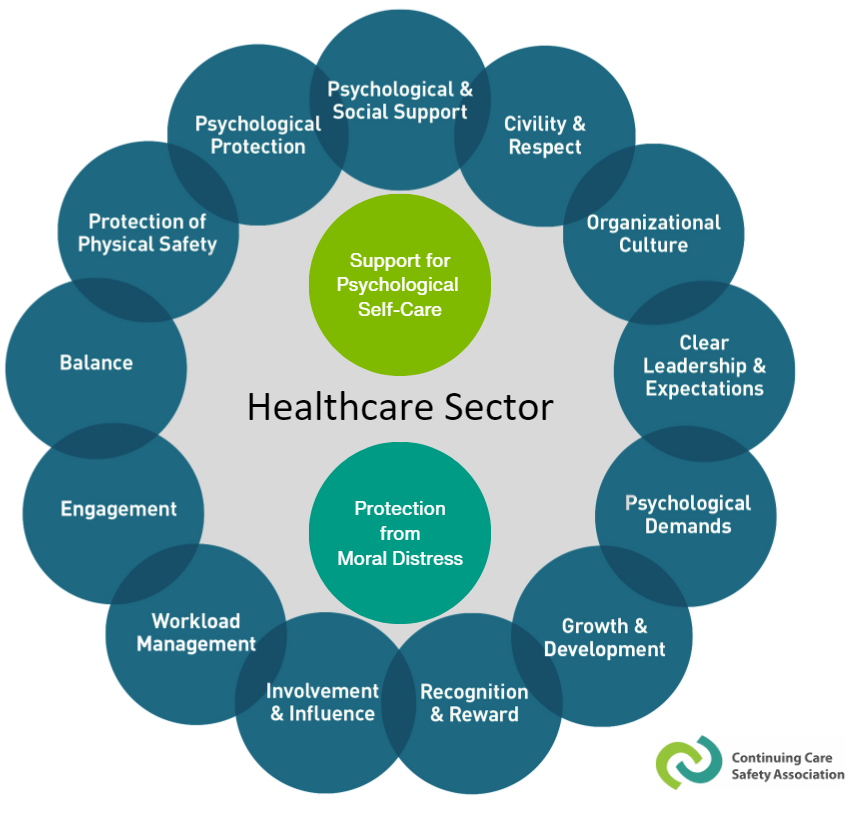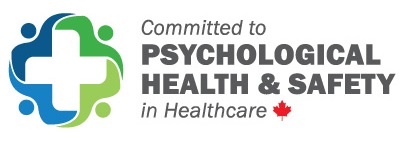Psychological Health and Safety
Workplace Mental Health and The National Standard
Maintaining good mental health at work is crucial for Canadian adults, who spend most of their waking hours in the workplace. Unfortunately, 70% of Canadian employees worry about their psychological well-being and safety while on the job. In fact, 14% believe that their workplace is not healthy or safe at all. Such environments can take a personal toll on individuals and have a negative impact on the economy.
Mental health problems and illnesses are responsible for approximately 30% of short- and long-term disability claims in Canada. The Canadian economy loses over $50 billion annually due to these issues.
The Mental Health Commission of Canada (MHCC) created Changing Directions, Changing Lives: The Mental Health Strategy for Canada to draw on the experience, knowledge and wisdom of thousands of people across the country and provide an opportunity for everyone’s efforts – large and small – to help bring about change. The strategy includes creating the National Standard for Psychological Health and Safety in the Workplace. In partnership with Canadian Standards Association (CSA Group) and Bureau de normalisation du Quebec (BNQ), the standards were developed and approved by the Standards Council of Canada.
The Standard is framed around recognizing and taking action to realize 13 psychosocial factors that can impact the mental health of employees in the workplace. It is a collection of voluntary guidelines, resources, and tools aimed at assisting organizations in fostering mental wellbeing and preventing psychological harm in the workplace.

13 Factors of Psychological Health and Safety
+ 2 Factors Relevant to the Healthcare Sector
Why should your organization implement a psychological health and safety management system?
Building the Foundation and Assembling the Pieces:
- Risk Mitigation
- Cost Effectiveness
- Recruitment & Retention
- Sustainability & Excellence
The vision for a psychologically healthy and safe workplace is one that actively works to prevent harm to worker psychological health, including in negligent, reckless, or intentional ways, and promotes psychological well-being.

CCSA has signed the Declaration of commitment to Psychological Health and Safety in Healthcare.
As a signatories of the Declaration of Commitment to Psychological Health and Safety in Healthcare, we demonstrate our commitment to:
- Take action in alignment with the principles of the National Standard for Psychological Health and Safety in the Workplace;
- Recognize the value of our staff’s psychological health and safety and its interdependence with patient safety; and that creating a psychologically safe work environment benefits both patients and staff;
- Cultivate a workplace culture that respects our staff’s needs including, but not limited to, their psychological health and safety; and,
- Be leaders and champions for advancing workplace psychological health and safety
Supporting Psychological Health and Safety in Continuing Care

Promotion of Workers' Mental Health


As part of our Psychological Health and Safety Program, CCSA has partnered with the Canadian Association for Long-Term Care (CALTC) to support a grant they have received from the federal government to boost resiliency and mental health education with staff in long-term care across the country.

Prevention of Psychological Harm

Government of Alberta OHS Prevention Initiative
The OHS prevention initiative focuses on reducing common workplace injuries, protecting at-risk workers and identifying higher-risk work situations. The initiative also coordinates efforts between OHS system partners to achieve better health and safety outcomes.

Psychological Protection from Violence and Harassment

“Violence and Harassment” has been 1 of the top 5 injury causes in the continuing care industry. CCSA has adapted the evidence-based Violence and Aggression, Responsive Behavior (VARB) Toolkits and Resources from Ontario’s Public Services Health and Safety Association (PSHSA). A Psychologically safe and healthy organization actively tries to prevent harm to workers from harassment, bullying, discrimination, violence, or stigma.
